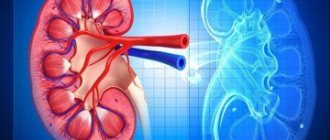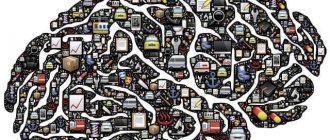The modern reality is that older people are much more likely to develop mental illnesses than younger people. Unfortunately, the body does not develop immunity to psychological disorders. No guarantees can be made as to who will be affected by these problems and who will not. In such cases, you just need to pay special attention to your relationship with your elderly relatives, to yourself, have all the necessary information about the signs of mental illness in older people and promptly seek professional medical help.
How do mental disorders occur in older people?
There are people who do not experience any particular difficulties in old age, even if they have gray hair, but at the same time there is still fire and wisdom in their eyes. During the process of natural aging, changes occur in the body: energy decreases, bone tissue is depleted, the work of blood vessels and the heart worsens, blood circulation slows down significantly, and the skin receives less nutrients, while becoming dull and decrepit, vision decreases and muscle tone is lost. But even in such cases, older people can find the necessary strength to adapt to these changes. Some exercise to maintain physical fitness, while others set a goal for themselves: to regularly walk in nature, while receiving the necessary oxygen. Today there are a large number of vitamin complexes on sale to maintain the health of elderly people. All the measures taken usually have one goal - maintaining physical health, but for some reason we forget or don’t even think about the fact that the psyche also requires high-quality support.
At retirement age, there is inevitably some decrease in the functioning of the biological body, as well as mental capabilities. However, there are older people who are extremely optimistic, and it is from them that we need to take an example. Such old people care about maintaining their fortitude, managing their own will, while not experiencing fears of change. But many are ready to put up with a decline in strength, their gaze is fixed only on the past, at the cost of the future, pessimistic moods are the reasons for thoughts of death, all this leads to the lightning-fast decline of an elderly person. A state of constant anxiety provokes the emergence of mental illness and a general disturbance of psychological balance.
Mental illnesses of old age can be divided into:
- Reversible pathologies. They do not lead to dementia; they are called involutional or functional.
- Irreversible damage. They are organic psychoses that appear as a result of destruction in the brain (can have consequences in severe impairment of intellectual abilities).
Neuroses in the elderly
In many nursing homes there are people with various manifestations of neuroses. They are based on damage to the blood vessels of the brain. A person complains of ringing and noise in the ears, dizziness, heaviness in the head, has difficulty walking and getting out of bed, and gets tired even from light exertion.
If you notice that an elderly grandfather or aunt has suddenly become too irritable, cannot tolerate noise well, complains of insomnia and partial memory loss, do not pass by! The consequence of neurosis can be a serious deterioration in the general condition, upon the occurrence of which it will no longer be possible to return the person to a full life.
What are organic (irreversible) mental disorders in pensioners?
Dementia can lead to organic mental disorders of personality and behavior. Such disorders are serious, irreversible diseases and most often occur in old age.
Dementia syndrome does not occur suddenly; the progression of mental disorders occurs rather slowly, from unnoticeable manifestations to an acute deterioration of psychological health. Dementia can lead to two types of disease, total and lacunar. Total , by its name, says everything about itself - this is the final defeat of all internal systems. An elderly person suffering from total dementia will ultimately lose himself as a person, cease to understand who he is, will not be able to perceive information, and will be as helpless and inadequate as possible. Lacunar dementia has less complex consequences: partial memory loss, with the preservation of the person as an individual.
Degenerative dementia can take the form of the following organic mental diseases: senile dementia, Alzheimer's and Pick's disease.
Senile dementia. This mental disorder leads to a complete loss of intellectual capabilities. Such patients behave extremely unpleasantly; they are constantly irritated by something, grumble and suspect everyone around them. Short-term memory is impaired, so that long-lived events are remembered in every detail, and yesterday is completely forgotten. Such memory gaps can be filled with fantasies, leading to delusional obsessions. Extreme mood swings, inappropriate behavior of an elderly person, lack of any analysis and forecasting of events. The patient may pour his hot coffee on the floor and bring a mug with nothing in it to his mouth, while expecting a cold drink. There may be extreme manifestations of instincts: from complete loss of appetite to overeating with the inability to satisfy the feeling of hunger. Sexual instincts also undergo changes.
So how can you help a patient diagnosed with senile dementia? This can only be done through patient care and care. It is currently impossible to cure this disease.
Alzheimer's disease. This mental disorder progresses gradually.
It is necessary to be as attentive as possible to the loss of an elderly person’s ability to remember distant and not so distant events. The appearance of absent-mindedness, forgetfulness, confusion in matters, past and present, are the first signs of a mental disorder. There are disturbances in the sequence of events, and difficulties arise with orientation in time. The patient changes for the worse: he exhibits selfish behavior and does not tolerate objections. Prolonged depression, delusional states, and various hallucinations can also be symptoms of Alzheimer's disease. As Alzheimer's disease progresses, the symptoms of dementia become clearer and more noticeable. An elderly patient is poorly oriented in time, places, events, confuses names, may not remember his address, and cannot determine his location. Patients with this disease are unable to say how old they are and are lost in the main moments of their own lives. There may often be a loss of real sense of time: they may see and speak like a child, and be confident that their deceased loved ones are still alive and well. Household skills are lost: patients lose the ability to use household appliances, cannot dress themselves and perform simple hygiene procedures. Clear actions are replaced by chaotic wandering and collecting unnecessary things. The patient may have difficulty counting and forget letters and words. Speech changes radically. At first, vocabulary becomes scarce. Real actions in dialogue with an elderly patient can be replaced by fantasies. As the disease progresses, speech loses all meaning and consists only of simple words and fragments of phrases. In advanced stages of the disease, older people completely lose the ability to live without outside help , physical activity degrades or is completely suspended, and meaningful speech is lost.
The main problem is that the first symptoms of mental disorders and illnesses (memory abnormalities, changes in behavior and character) are not observed by a doctor. Timely treatment in the early stages of Alzheimer's disease will be most effective. In modern medicine, there are a number of drugs that can significantly alleviate this mental disorder.
Vascular dementia. The causes of this mental disorder may be pathologies in the blood vessels of the brain, leading to impairment of cognitive functions. Also, this disease develops very rapidly. The ability to adapt socially suffers greatly. The symptoms of this disease are very similar to the symptoms of Alzheimer's disease, however, they are less severe. Gaps in memory, confusion in time and space, can have clear manifestations and change throughout the day. It is necessary to distinguish between these diseases as early as possible, because the methods of treating them are radically different.
Pick's disease. Caused by damage to parts of the brain, it leads to personality disintegration. At the same time, the patient’s intellectual abilities are not lost; he is still able to count, assimilate information, and remember dates and events. Speech also does not suffer in any way, the patient uses the previously accumulated vocabulary and can speak well. So what was hit? An elderly person begins to experience anxiety, he is constantly under stress, irritability appears, and he loses the ability to predict the consequences of his actions.
Therapy and development of the disease for this mental illness depend on the identification of the affected part of the brain. There is no cure for this disease. When using pharmacological drugs, you can only slow down the process.
Parkinson's disease. Manifestations of the disease may be noticed by others when all timely treatment deadlines are missed. The disease can develop for several years without showing itself in any way. Almost everyone experiences trembling of the limbs, but if you add to this anemia for a long period, then it is better for an elderly patient to see a doctor. If you do not seek professional help, you may develop difficulties with coordination of movements, slower reactions, and motor activity becomes noticeably slower. Sudden surges in blood pressure can cause fainting and lead to severe periods of depression. Parkinson's disease usually does not affect the intellectual abilities of an elderly patient. But this can be a negative factor. Old people who observe and accept the progression of the disease, their own helplessness, and the futility of treatment can fall into severe depression. At the same time, the quality of life of the elderly patient will gradually deteriorate, but this is not the main thing. With the modern development of pharmacology, patients live quite a long time, but the main danger lies in poorly coordinated movements, which leads to falls, injuries, fractures and difficulties with swallowing food. Caring for and caring for an elderly patient must be done extremely delicately so as not to complicate depression. To ensure that your actions in caring for an elderly relative do not cause him to feel guilty, it is worth looking for opportunities to treat him in a specialized boarding house for the elderly.
Mental disorders in old age.
AGING PROCESSES AND MENTAL DISORDERS IN ELDERLY AND SENILE AGE.
Aging is a natural physiological process and is not a disease in itself. Although human aging is a normal process, it is accompanied by a complex set of age-related changes in almost all organs and systems of the body. The skin gradually fades and the hair turns grey. Bones become fragile, joints lose mobility. The work of the heart weakens, the blood vessels become less elastic, and the speed of blood flow slows down. Metabolism changes, cholesterol, lipids, and blood sugar levels increase. The activity of the respiratory and digestive systems is disrupted. The activity of the immune system decreases. Visibility decreases, hearing weakens, and the acuity of other senses decreases. The activity of the endocrine and nervous systems weakens. Although age-related changes in the body are not a disease in the medical sense, they cause a feeling of pain, uselessness, and weakness.
The psyche also suffers during the aging process. Mental flexibility and the ability to adapt to changing living conditions decrease, activity and general tone decrease, a feeling of weakness and general malaise appears, mental processes slow down, memory and attention deteriorate, the ability to rejoice and react emotionally to life events decreases, and a kind of senile conservatism appears. These mental changes, expressed to a greater or lesser extent, accompany the aging process in almost every person.
The aging process is extremely uneven. Signs of aging in different organs and systems of the body do not appear simultaneously. In other words, some organs “age” earlier, and others later. For example, visual acuity begins to deteriorate after 20 years, changes in the musculoskeletal system appear after 30, cardiovascular and muscular systems - after 40, hearing loss becomes noticeable after 50. Once begun, age-related changes gradually progress throughout a person’s life. In domestic science, the age of 45-60 is designated as a period of reverse development (involutionary, menopausal), 60-75 years - as elderly (presenile), 75-90 years - as senile age itself. People over the age of 90 are considered centenarians.
The aging process is individual. People age differently. This applies not only to the age of appearance of the first involutive changes in the body, not only to the predominant damage to some organs and the relative safety of others, but also to mental changes associated with the aging process. Many old people retain high creative activity and the ability to find joy in life in changed conditions. Accumulated life experience and maturity of judgment allow an aging person to reconsider past attitudes and views, form a new life position, and acquire a calm, contemplative attitude towards life. However, this is not always the case. In many cases, the very fact of aging and a number of difficult life situations accompanying it create conditions for disruption of human adaptation. The loss of loved ones and the problem of loneliness, retirement, the end of professional activity, a change in the stereotype of life and financial difficulties that have arisen, the development of ailments and illnesses that limit physical capabilities and cause a feeling of weakness, the inability to independently cope with everyday problems, fear of the future, awareness of the inevitability of the approaching death - this is not a complete list of psychological problems that an elderly person faces.
Age-related biological changes in the body and socio-psychological factors contribute to the development of mental illnesses in old age.
The most common manifestations of mental illness in old age are depression, anxiety and hypochondria.
All old people periodically complain about being in a bad mood. In cases where the depressed mood becomes persistent, lasting for weeks, especially months, we are talking about depression. Sadness, sadness, gloominess, joylessness, a melancholy or melancholy-anxious mood, a painful feeling of emptiness, a feeling of one’s own uselessness, the meaninglessness of existence - this is the main context of the experiences of a depressed old man. With depression, activity decreases and interest in usual activities and hobbies decreases. A patient with depression often complains that “he does everything through force.” Various unpleasant sensations and pains often appear, and overall vitality decreases. Sleep is disturbed and appetite decreases. Depressed old people do not always tell others about their painful experiences. They are often embarrassed by them or view their condition as a natural manifestation of old age. If an elderly person becomes sad, silent, inactive, lies in bed for a long time, often cries, and avoids communication, these behavioral changes may indicate depression.
Depression is a serious illness. Without treatment, depression in old age can last for years, creating a lot of problems for both the patient and his relatives. At the first suspicion of developing depression, you should consult a doctor. The earlier treatment for depressive disorders is started, the faster a positive result is achieved. Depression in old age is treatable. There are a number of medications and psychotherapeutic techniques that can relieve an elderly person of depression and prevent its development in the future.
Many people become more anxious as they get older. Simple everyday situations, which a person could previously cope with without difficulty, cause a number of unfounded fears, excitement and anxiety. Going to the doctor, paying utility bills, meeting with friends, buying groceries, cleaning and much more become a source of endless worries and fears. In these cases, they talk about the development of an anxiety (neurotic) disorder. Such patients are fussy, restless, and pester those around them with the incessant repetition of their fears. A constant feeling of internal tension with a sense of impending disaster makes the life of such people unbearable. A common topic of fear in old age is one’s own health or the health and life of loved ones. Such patients are afraid to be left alone, demand that someone close to them constantly accompany them, and endlessly call their relatives with questions about their well-being. At times, anxiety reaches the level of panic. Patients cannot be at peace, they rush around the apartment, moan, cry, and wring their hands. Anxiety is often accompanied by a variety of unpleasant sensations in the body (pain, palpitations, internal trembling, abdominal cramps, etc.), which further increases anxiety and gives rise to new fears. With anxiety, sleep is often disrupted. Patients cannot sleep for a long time and wake up at night. Sleep disturbances, in turn, become a source of new concerns and fears.
Neuroses accompanied by anxiety are a serious disease that requires treatment from a specialist. This condition cannot be overcome by the effort of one’s own will. Taking sedatives provides only temporary relief. Meanwhile, the use of modern therapeutic techniques allows you to completely get rid of anxiety and fear.
Hypochondria is a person’s excessive fixation on bodily sensations with the appearance of fears or beliefs in the presence of a serious physical illness that is not confirmed by objective medical examinations. Old age itself, with the inevitable development of physical ailments and various painful sensations, provides abundant food for the formation of hypochondriacal experiences. Hypochondria usually manifests itself in the form of new, unusual and extremely painful bodily sensations for a person. Burning, tightening, twisting, shooting or incessant aching pain, “electric shocks,” a feeling of burning in the body - this is not a complete list of complaints from patients with hypochondria. A thorough examination by a therapist or neurologist does not reveal the cause of these sensations, and the prescription of painkillers is ineffective. Hypochondriacal sensations and ideas are usually accompanied by a low mood with a hint of irritability, dissatisfaction, and grumbling. These patients are distrustful, often change doctors, and insist on additional examinations. Constant fixation on painful sensations, an endless demand for help from relatives, significant financial costs for all new expensive examinations - this is the lifestyle of an old man suffering from hypochondria. Meanwhile, the basis for painful bodily sensations in hypochondria is mental disorders.
Treating hypochondria is a difficult task. Only a comprehensive prescription of medications and psychotherapy, persistence on the part of doctors and the help of loved ones will allow an elderly person to get rid of painful bodily sensations.
A relatively rare, but very dangerous mental disorder in old age is a manic state (mania). The main manifestation of mania is painfully elevated mood. Inappropriate gaiety with flat, often ridiculous jokes, a complacent and euphoric mood with a tendency to boast and self-aggrandizement are easily replaced by outbursts of anger and aggression. These patients are tireless, sleep very little, are agitated, are constantly on the move, talkative, and distractible. They find it difficult to concentrate on any topic and easily jump from one thought to another. In a manic state, a person looks for new acquaintances, spends money uncontrollably and often becomes a victim of scammers.
During the period of mania, a person is uncritical of his behavior and rarely goes to the doctor of his own free will. Meanwhile, active treatment is necessary not only to prevent inappropriate behavior during manic excitement, but also because mania, as a rule, gives way to severe depression. Without adequate therapy in old age, there is often a continuous change of manic and depressive states.
Older people are often suspicious. They often complain about unfair treatment from others, oppression from relatives, and infringement of rights. In cases where these complaints have no real basis, we can talk about the development of delusional ideas - false, untrue judgments and conclusions caused by a disorder of mental activity. Delusional ideas are the main manifestation of chronic delusional disorder, a disease that often occurs in old age. Gradually, suspicion intensifies; any actions of others are interpreted as directed against the patient. The content of delusional ideas is varied. Most often these are ideas of theft, material or moral oppression, persecution for the purpose of taking possession of property, poisoning. Patients say that ill-wishers want to “get rid of” them, evict them from the apartment, steal things, food, mock them in every possible way, secretly enter the room, leave garbage, dirt, add inedible objects to food, let gases into the apartment, scatter poisonous powders. Sometimes the content of delusion is jealousy. Events that constitute the content of delirium, as a rule, occur within the apartment. Neighbors or relatives usually act as ill-wishers. Less often, strangers, representatives of the police, public utilities, and doctors are involved in the circle of persecutors.
In old age, delusions are often accompanied by false perceptions (hallucinations). Patients “hear” unusual sounds in the apartment, knocking, steps, voices. Sometimes they complain about unusual smells in the apartment, a changed taste of food. Sometimes they “see” strangers in the apartment.
Delirium is always accompanied by anxiety, fear, and often depressive feelings. The patients themselves suffer from their disease no less than the people around them. Delusional statements of old people are often perceived by people around them as psychologically understandable. Often relatives, wanting to protect the patient from unpleasant neighbors, change apartments. When the situation changes, the delirium subsides for a while, but then resumes with the same force.
Patients with delusions are not critical of the content of their experiences, it is impossible to convince them, and logical arguments cannot prove to them the falsity of statements. They refuse psychiatrist consultation and treatment. In the absence of persistence on the part of relatives, these patients can remain at home for years, and sometimes decades, without treatment. At the same time, having started treatment and feeling relief in their condition (disappearance of anxiety, fear, deactualization of delusional experiences), patients subsequently independently begin to seek the help of a doctor.
A specific form of mental disorders in old age is dementia (dementia). The main manifestation of dementia is impairment of memory and higher mental functions of a person. The most common forms of dementia in old age are vascular dementia and Alzheimer's disease.
A mild decline in memory is also observed during normal mental aging. As we age, the speed of mental processes and the ability to concentrate decrease, forgetfulness appears, difficulties arise in remembering names, and the ability to memorize new information deteriorates. These memory impairments do not interfere with the daily and social life of elderly people; all personal characteristics of a person remain unchanged.
A different picture is observed in dementia. Memory impairments are never isolated, but are always accompanied by changes in other mental functions and behavior in general. Alzheimer's disease develops gradually. The first manifestation of the disease is memory disorders and decreased memory for current and past events. A person becomes forgetful, absent-minded, current events in his experiences are replaced by the revival of memories of the past. Already in the early stages of the disease, orientation in time is affected. The idea of the time sequence of events is disrupted. The character of a person also changes, the previously inherent personal characteristics are erased. He becomes rude, selfish, sometimes apathy and inactivity come to the fore. In some cases, the first manifestations of Alzheimer's disease may be delusions or hallucinations, as well as prolonged depression.
As Alzheimer's disease progresses, symptoms of dementia become apparent. The patient is disoriented in time, space, and surroundings. These patients cannot name the date, month and year, often get lost on the street, do not always understand where they are, and do not recognize their friends and loved ones. Orientation in one’s own personality is also disturbed. Patients cannot tell their age and forget key facts of life. Often there is a “shift to the past”: they consider themselves children or young people, they claim that their long-dead parents are alive. Habitual skills are impaired: patients lose the ability to use household appliances, cannot dress or wash themselves. Conscious actions are replaced by stereotypical wandering and senseless collecting of things. The ability to count and write is impaired. Speech changes. At first, the vocabulary becomes significantly poorer. Current events in the patient's statements are replaced by false memories. Gradually, speech loses more and more meaning, the statements of patients acquire the character of stereotypical phrases, fragmentary words and syllables. In advanced stages of Alzheimer's disease, patients completely lose the ability to exist without outside help, speech and motor activity is limited to meaningless screams and stereotypical movements within the bed.
In the early stages of Alzheimer's disease, patients rarely see a doctor. As a rule, memory impairment and character changes are assessed by others as manifestations of natural aging. Meanwhile, treatment started at an early stage of Alzheimer's disease is most effective. However, modern medications can slow down the progression of the disease, reduce the severity of memory impairment, and make it easier to care for patients even in the later stages of Alzheimer's disease.
In vascular dementia, the severity of mental disorders usually does not reach such a profound degree as in Alzheimer's disease. These patients are characterized by significant fluctuations in the severity of impairments in memory, orientation, and awareness of the surrounding reality, sometimes even within a day. The prognosis in these cases is better than in Alzheimer's disease. It is extremely important to clarify the diagnosis already in the early stages of the disease, since therapeutic approaches vary significantly in different forms of dementia.
Mental illnesses in old age are not always recognized in time. Often the person himself, his relatives, and sometimes general practitioners view the resulting disorders as a manifestation of “natural” aging. Often, an elderly person, having suffered for years from painful manifestations of mental disorders, is afraid to turn to a psychiatrist, fearing that they will be considered “crazy.” These people especially need the help and support of their relatives. Properly prescribed treatment allows an elderly person to get rid of painful experiences that darken the last stage of his life and achieve a calm and happy old age.
In gerontology (the science of old age), a distinction is made between the concepts of “painful” and “happy” aging. Currently, gerontopsychiatry has great opportunities for early diagnosis of mental disorders in old age and a wide arsenal of medication and psychotherapeutic methods for their effective treatment. Starting treatment already at the first manifestations of mental disorders in old age is the key to the success of therapy and improving the quality of life of elderly and senile people.
anonymous: Cancel reply
Causes of mental disorders in older people
In old age, a variety of health problems often arise and this is a natural result of the aging process, so identifying mental illness is quite difficult.
The main causes of involutional disorders are mental health disorders, negative thinking, periods of stress and anxiety. Not every nervous system is able to withstand neuroses and stress, while it is constantly under tension. Mental disorders often overlap with existing physical illnesses.
Organic disorders can have various causes. For example, lacunar dementia can occur against the background of vascular destruction, infections, alcohol or drug addiction, various injuries and oncology. Degenerative dementia can also have different causes, however, the fact is clearly established that Alzheimer's and Pick's diseases arise from damage to the central nervous system. It is also worth studying your own ancestry in detail, because the presence of ancestors with mental disorders can greatly increase the risks.
Mental changes in old age
The aging of the human body is accompanied by changes in all its functions - both biological and mental. Statistics show that older people suffer from diseases associated with mental disorders much more often than young and middle-aged people. Mental disorders of varying degrees are observed in 30-35% of people over 65 years of age. Mental health disorders in older people manifest themselves in varying degrees: from relatively mild disorders to quite severe ones, in which patients require systematic treatment and observation by psychiatrists.
Mental disorders in old age can be expressed in a decrease in mental activity: perception becomes difficult, its volume narrows, emotional instability develops, and the ability to concentrate and switch attention deteriorates. Often there is a sharpening of characterological characteristics: a person becomes capricious, touchy, stingy, selfish, conservative in judgment, prone to moralizing, and afraid of any life changes. Lack of self-control makes him irritable, aggressive, hot-tempered, or, conversely, depressed, insecure and whiny. Mental disorders can be expressed in the form of anxiety, which easily arises over the most insignificant reasons, and then develop into fear, despondency and hopelessness. Such negative emotions reduce vitality and aggravate the manifestations of old age.
Severe mental disorders found in pre-senile and senile people include diseases characterized by organic changes in the brain - these are diseases such as Pick's disease, Alzheimer's, and senile dementia. Such forms of mental disorders are accompanied by amnesia, dementia, speech disorders, severe thinking disorders, spatial disorientation, depression, delusions, hallucinations, etc. Such patients not only need systematic treatment, they require constant care and attention from loved ones.
You should not think that old age necessarily entails a deterioration in mental health. Many diseases that occur in old age can be cured. It is important not to ignore changes in the behavior of your elderly relatives, to be attentive to them, since such changes can be symptoms of depression and psychogenic-neurotic disorders. Caring for your loved ones and proper treatment can lead to an improvement in their condition and return older people to a full life.
Author: Tatyana Vasilevskaya
Fill out the form to get an approximate cost of care. The actual cost may be lower!
Patient weight:
Do I need to do an intramuscular injection?
Do I need to do an intravenous injection?
Do I need to put in an IV?
Do I need to give an enema?
Do you need care during the holidays?
Is it necessary to get to the patient from the metro by ground transport?
What are the manifestations of a mental disorder: symptoms in older people
Reversible (involutional) disorders
A large share of responsibility for recognizing a mental disorder in an elderly person lies with the local therapist. Patients come to doctors with signs of a psychosomatic disorder, somatic complaints, which often do not have a clear appearance. The doctor must recognize latently identified depressive disorders. For example, ringing in the ears, a feeling of heaviness in the head, dizziness, chronic fatigue, impaired walking coordination, attacks of irritability, tearfulness and insomnia. Patients with mental disorders undergo outpatient treatment.
Signs of depression require great attention, because it can be a manifestation of various mental illnesses.
Irreversible (organic) disorders
Such diseases have characteristic signs of disruptions in the functioning of the psyche, memory and intellect.
The first manifestations of dementia may be poor orientation in time and space, signs of absent-mindedness and forgetfulness. Memories of the past are much brighter and deeper, but this is natural for old people. Therefore, you need to pay attention to the addition of delusions and hallucinations to this.
Pensioners with mental disorders often get lost, do not remember their phone number and address, and sometimes even forget their name.
Speech disorders are also common. The vocabulary is greatly reduced, the formulation of phrases is meaningless, and only sounds remain.
With advanced forms of dementia, patients are completely dependent on the people serving them. They lose the ability to eat and move independently. Such patients are under 24-hour supervision.
There is no cure for any type of dementia. But if you promptly seek medical help in establishing a diagnosis and subsequent treatment, it is possible to greatly slow down the progression of a mental disorder and maintain a high quality of life for the patient and the people around him.
What do older people complain about?
In elderly patients, various manifestations of dyscirculatory encephalopathy, which is based on cerebral atherosclerosis, are widely represented.
Characteristic complaints include a feeling of heaviness in the head, noise and ringing in the ears, dizziness, staggering when walking or getting out of bed, increasing fatigue even with light physical exertion. There is a need for daytime rest. Patients become irritable, impatient, do not tolerate noise well, tears easily appear in the eyes, there is a decrease in memory, and sleep is disturbed. Care in such cases is usually provided on an outpatient basis.
Are mental disorders in older people treatable?
Therapy depends entirely on the mental illness. People suffering from involutional disorders have a high chance of effective treatment. Such diseases are reversible. For example, depressive states and paranoia, stress and hypochondria can be successfully treated through psychotherapy in combination with pharmacological therapy. The doctor may prescribe anti-anxiety, sedative and antidepressant medications for treatment. In big cities there are special group classes with psychotherapists.
Irreversible (organic) disorders, the basis of which is some kind of dementia, cannot be treated. However, there are a large number of methods and therapies aimed at maintaining a full life and slowing down the development of diseases. For this purpose, a variety of drugs are used to help maintain the degree of consciousness and cognitive functionality. A big problem is the timely diagnosis of these diseases, because dementia can be confused with signs of natural aging and then treatment will be delayed.
How to prevent mental disorders in older people?
Aging involves the emergence of many diseases that cannot be protected against at a young age. However, there are methods to prevent involutional disorders. Organic personality disorders cannot be prevented, but there are methods for prevention. To maintain mental clarity for as long as possible, you need to be aware of the main causes of possible stress. Therefore it is recommended:
- Seek communication with new people, get involved in a variety of hobbies, and do physical exercise.
- Eliminate any loneliness.
- Seek support in case of loss of loved ones.
- Think about retirement in advance, look for like-minded people, think about employment or hobbies.
- Maintain a high standard of living.
The main method of preventing mental disorders is interaction with peers who have found order in life after retirement. Health groups, dance clubs, third age institutes - there are a huge number of places that will help you cope with loneliness. Grown-up children should also pay their attention to their elderly parents (in person or by telephone) and constantly provide all possible support.
The most severe stress condition is loneliness. The passage of time for an elderly lonely person is suspended. Observing the vibrant lives of other people, he realizes that he has fallen out of this rhythm. When an elderly person observes the indifference of people towards him, especially relatives, he begins to feel useless, which leads to complex emotional experiences and anxiety. This can trigger the progression of mental disorders. Oddly enough, old people living with their relatives are much more likely to feel useless and useless. How is this possible? It is not enough to just move an elderly relative into your home, you need to find time every day to listen to him, encourage him and make him feel important to the family. You can ask him for some simple help with everyday life, with children, etc., do not refuse if he offers it himself.
Risk factors for mental health problems among older people
At any point in a person's life, a variety of risk factors can threaten their mental health. Older people, in addition to the normal stressors that occur in everyone's lives, may also be affected by factors more typical of old age, such as significant and persistent decline in abilities and functional decline. For example, older adults may experience limited mobility, chronic pain, frailty, or other health problems that require some form of long-term care. In addition, events such as loss of loved ones or decline in socioeconomic status after retirement may be significantly more common in the lives of older adults. All of these factors can lead to isolation, loneliness or psychological distress, which may result in them requiring long-term care. Mental health affects physical health and vice versa. For example, older adults with conditions such as heart disease have higher rates of depression compared to those in good health. Conversely, if depression is left untreated in an older person with heart disease, it can negatively impact the outcome of the physical illness.
In addition, older people may be subject to abuse, including physical, sexual, psychological, emotional, financial and material abuse, neglect, neglect, and serious disregard for human dignity and disrespect. Current evidence suggests that one in ten older people is abused. Elder abuse can cause not only physical damage, but also serious, sometimes long-lasting, psychological consequences, including depression and anxiety.
How to provide care for older people with mental disorders?
Ordinary life does not allow us to notice the efforts aimed at self-care. Going to the store for food, cooking, washing, opening a window, turning on the gas stove - all these simple things can be almost impossible for older people suffering from mental disorders. The responsibility for ensuring that elderly people meet their everyday needs falls entirely on those around them.
Experience interacting with elderly patients with memory impairment says:
- To maximize mutual understanding, requests should be formulated in short and simple sentences.
- It is necessary to show your goodwill and be sure that communication brings only positive emotions to a patient with mental illness.
- You need to repeat the same information several times to make sure that the patient understands you correctly.
- Use reminders to help you remember dates and specific places. Be patient with this.
- You also need to pause in dialogues with the patient, because he is not able to instantly remember, react and respond to your requests.
- Do not argue, do not engage in meaningless arguments and discussions, as this has a negative effect on the patient. If you cannot distract the patient, then you can make concessions to him (even the most insignificant ones).
- Take all accusations and discontent with ease, since it is simply impossible to get rid of it. Try to understand the situation from the patient's point of view.
- Praise patients with mental disorders more; they respond well to this, and, on the contrary, they withdraw into themselves and become stubborn when receiving criticism.
- You can encourage with a kind word, a smile, a gentle touch, if the patient fulfilled your instructions well, made an effort and did everything possible for a positive result.
Care needs to be organized correctly. Observe the following points without fail:
- Detailed regimen and daily routine of the patient (it is not advisable to change).
- Providing a balanced diet, proper exercise and regular walks.
- Keep the patient occupied with simple board games, crosswords, and memorizing poetry - forced intellectual activity should not be imposed.
- Diagnose and treat concomitant diseases without fail.
- Consider the place of residence, make it functional and suitable for the patient.
- Maintain hygiene - wash the patient, wash his things and bed linen.
- Make sure you have the right amount of time to sleep.
Rare disorders
Mental disorders in old age can also be accompanied by mania. It is manifested mainly by a painfully elevated mood, concentration on some idea, sharp transitions from emotional excitement to depression, from aggression to apathy.
Chronic delusional disorder is characterized by the appearance of delusional ideas. The patient's suspicion gradually increases, as a result of which any actions of others are perceived as directed against him. Common “companions” of delirium in old age are hallucinations.
Dementia (dementia) is a special form of mental disorders in old age. Impairment of memory and higher mental functions of a person is the main manifestation of this condition. The most common forms of dementia include vascular dementia and Alzheimer's disease.
Treatment of mental disorders in older people is mainly aimed at slowing down the process of their development. To alleviate the condition of a patient with such disorders and to achieve a controlled course of the disease, psychotherapy sessions and the prescription of medications, individually selected by the specialists of the Aurora Clinic, can be used.
To make an appointment call: +7 (812) 333-00-22.
Call us now
+7
or leave a request, we will call you back. Bolshevikov Avenue, Dybenko StreetSt. Petersburg, St. Krylenko, 43, bldg. 2, lit. A
Submit your application
Who should provide care and concern to a person with a mental disorder?
If a relative does this, the patient feels more comfortable. But if this is not possible, then it is worth considering the option of a caregiver. And with some mental illnesses, the patient may not recognize his relatives. The nurse must have a medical education, have all the necessary information regarding the course of a particular disease and its features, be prepared to show patience in case of inappropriate behavior of the patient, show goodwill, carry out medical actions according to the recommendations of doctors, and be able to satisfy the everyday needs of the ward. If you hire a nurse, you are showing significant care and guardianship to your elderly relative, so you don’t have to worry about how it looks from the outside. Recommendations on how to choose a nurse can be found on our website in the article section, in specialized hospitals, and in social services. Another very good form of care for older people with mental disorders is placement in a boarding house or nursing home. For example, the necessary assistance in caring for elderly people with Alzheimer's disease, dementia, and decreased intellectual activity can be obtained from the Eden network of boarding houses for the elderly. Constant supervision by professional staff, high-quality medical care, good leisure time - your elderly relatives especially need all this, and the Eden nursing home is ready to provide this opportunity.










